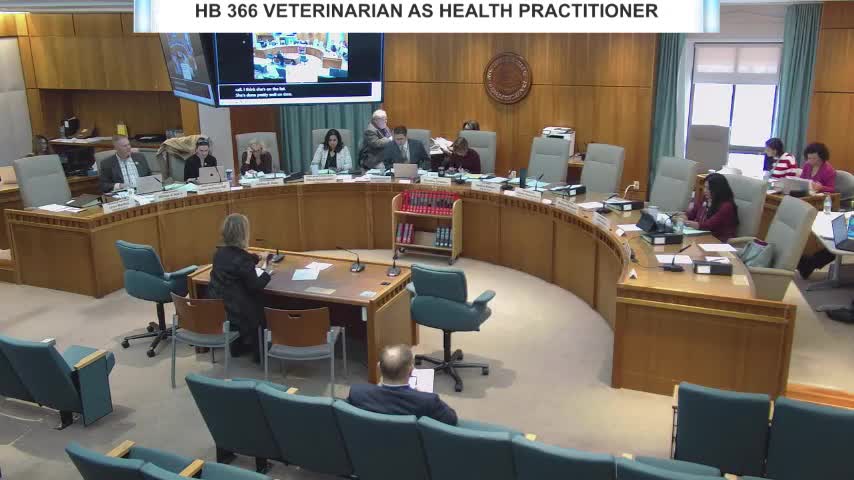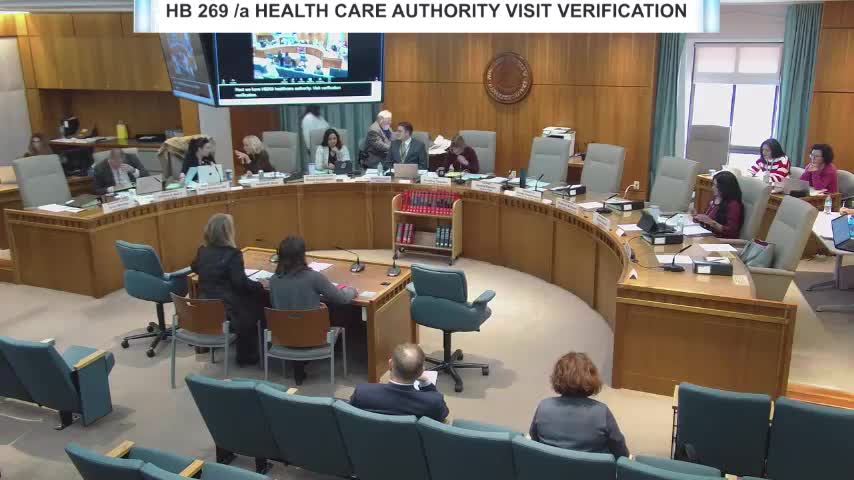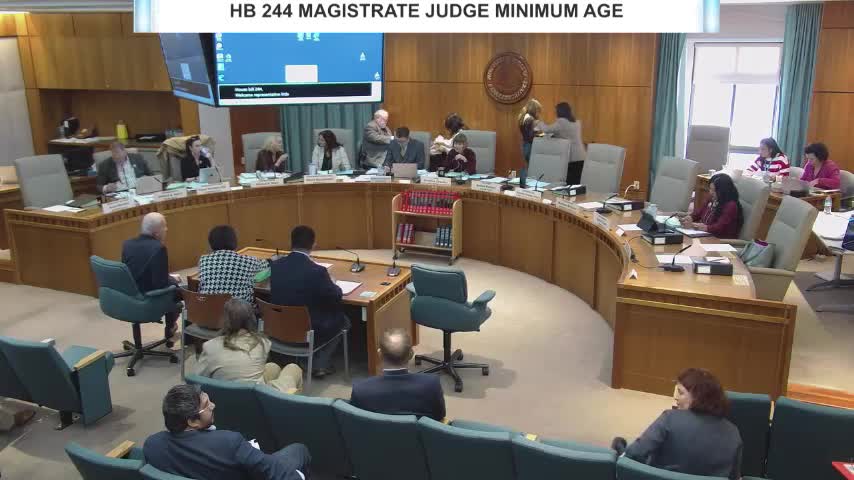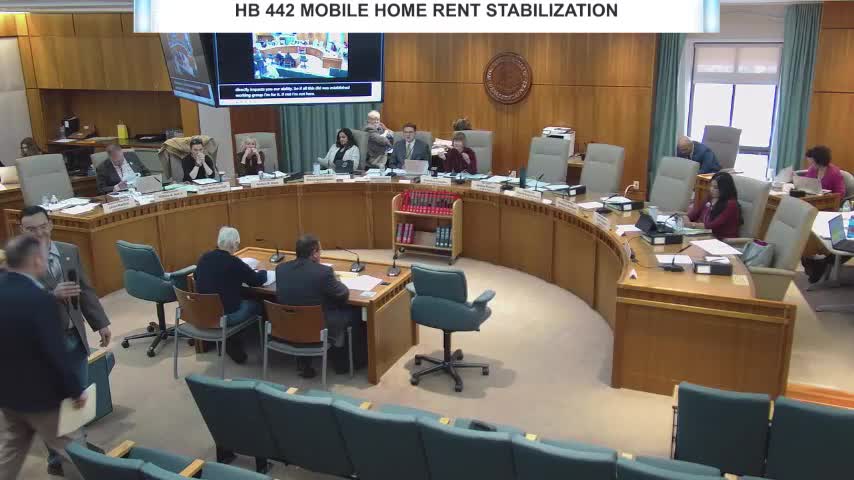Article not found
This article is no longer available. But don't worry—we've gathered other articles that discuss the same topic.

Committee approves listing veterinarians as health care practitioners

Committee backs opening electronic visit verification for home health providers

Committee approves raising minimum age for magistrate judges to 28

